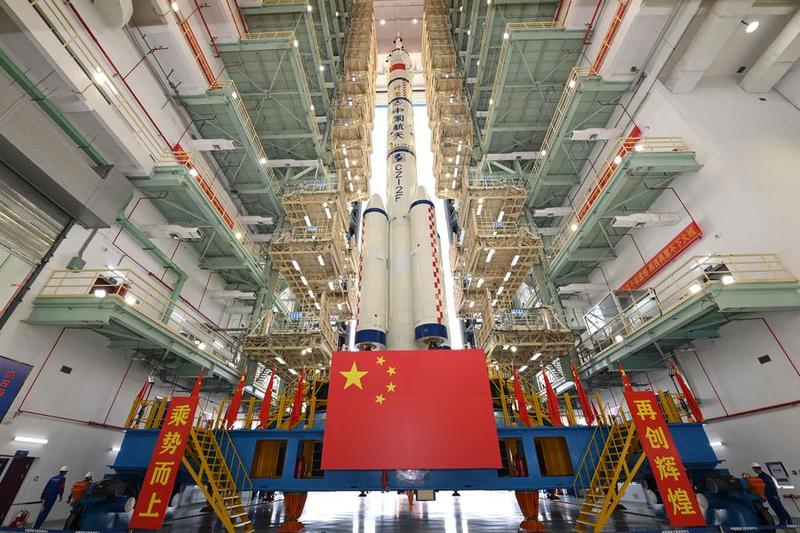China announces new life science experiment program in space station

This photo taken on April 16, 2025 shows the combination of the Shenzhou XX crewed spaceship and a Long March-2F carrier rocket preparing to be transferred to the launching area. (Photo/Xinhua)
The new life science experiments to be conducted in China's space station during the Shenzhou XX crewed spaceflight mission will involve zebra fish, planarians and Streptomyces, the China Manned Space Agency (CMSA) announced on Wednesday.
Notably, the Shenzhou XX mission marks China's first space-based investigation into the regeneration of planarians, a new organism introduced to China's space station and known for their extraordinary ability to regrow organs, CMSA spokesman Lin Xiqiang said at a press conference on the Shenzhou XX crewed spaceflight mission.
"This project will enhance our understanding of fundamental mechanisms of regeneration at the individual level and could provide insights into human health issues related to space-induced injuries," said Lin.
Noting that previous experiments with zebra fish and fruit flies in space were highly successful, Lin said that the Shenzhou XX mission will further experiment based on the zebra fish-hornwort co-cultivation ecosystem established during the Shenzhou XVIII mission.
The new zebra fish experiment will focus on protein homeostasis in higher vertebrates under microgravity and seeks to clarify how protein homeostasis regulates bone mass decrease and cardiovascular dysfunction caused by microgravity, he said.
As for Streptomyces, which can serve as critical players in soil health and plant resilience, the related experiment will study the expression patterns of microbial active substances and enzymes in space environments to lay the foundation for developing microbial technologies and products utilizing space resources, he added.
In addition, the Shenzhou XX crew will conduct another 59 experiments spanning space life sciences, microgravity physics, and new space technologies, according to the spokesman.
Breakthroughs are expected to be made in areas such as the cultivation of chips for vascularized brain organoids, non-equilibrium dynamics of soft matter, and the space-based preparation of high-temperature superconducting materials, he noted.
China's space station has now hosted over 200 scientific projects, with nearly 2 tonnes of scientific materials and applied equipment sent to orbit and nearly 100 experimental samples returned to Earth.
"Currently, we are conducting space science experiments according to plan, with all projects progressing smoothly," said Lin.
He added that the scientific results will be released regularly, following the first report on China's space station science and application progress in December last year.
The Shenzhou XX crewed spaceship is scheduled to be launched at 5:17 pm Thursday (Beijing Time) from the Jiuquan Satellite Launch Center in Northwest China.